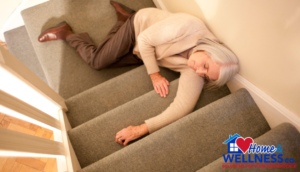The Risks Of Loneliness And Social Isolation For Seniors
The ever growing populaiton of aging elderly senior citizens should be recognized as an immediate concer. As millions of baby boomers reach retirement age, they will be planning for their futures. For many, remaining independent and aging at home is high on the list of priorities.
Social Isolation and Loneliness Are Health Risks
However, living on your own in an isolated home and enduring loneliness can lead to dangerous health consequences. In fact, an AARP survey proves that 1 in 3 senior citizens do not have regular companionship. Similarly, 1 in 4 seniors feel severe isolation and disconnect from the rest of the world. With the Covid-19 pandemic, there is an alarming increase of self-isolation and loneliness among most human beings in general.
Sure, independent living is admirable, but it can come with many challenges for seniors. Loneliness and social isolation pose many health risks and consequences.
Social disconnectedness and loneliness, at its core, are separate elements that lead to decreased physical health over time in the elderly.
Mountainous research paints a clear picture of how older adults who experience self-isolation and loneliness for an extended period are subject to poor health. Seniors are more susceptible to health risks and diseases such as:
- Cardiovascular diseases
- Dehydration
- High risk of strokes and decreased survival rate
- Disruptive sleep cycle
- High risk of dementia and cognitive impairment
- Alzheimer’s disease
- Higher chance of developing infections
- Decreased immune system
- Reduced cognitive and motor function
- Depression, anxiety, and other mental disorders
- Increased and consistent chronic inflammation
- Increased paranoia and fearfulness
The Real Downside of Social Isolation and Loneliness for Seniors
Loneliness is a subjective experience that eliminates or significantly decreases social contact with other people. Seniors who experience prolonged loneliness and social isolation have a higher rate of mortality.
There is a good chance you have an older adult in your life that you deeply care about. While you may not be able to spend a lot of time with them right now due to COVID-19, or for many other various reasons, you should make extra effort to reach out. Snail mail, text messaging, sending pictures, Facebook, and video chat tools like Skype and Zoom can be used to converse with loved ones during the pandemic.
Your goal should be to put as much effort as possible into engaging and decreasing self-isolation as possible. Digital socialization, after all, is better than no contact at all. It creates a sense of connectivity that helps seniors to remain optimistic and live healthier during trying times.
Conclusion
Loneliness and self-isolation undoubtedly impairs the health of seniors in the United States and all over the world. Prolonged loneliness often creates a feeling of despair and hopelessness that increases the risk of diseases and plays a role in early death. If you know someone or have a family member who is suffering in isolation, reach out and let them know you are thinking of them. It could make all the difference.





